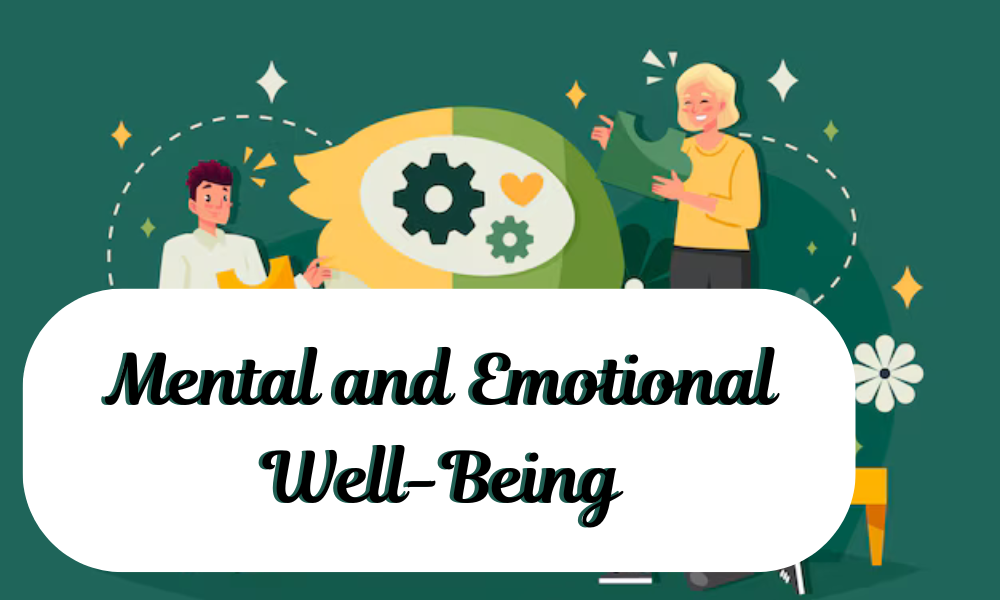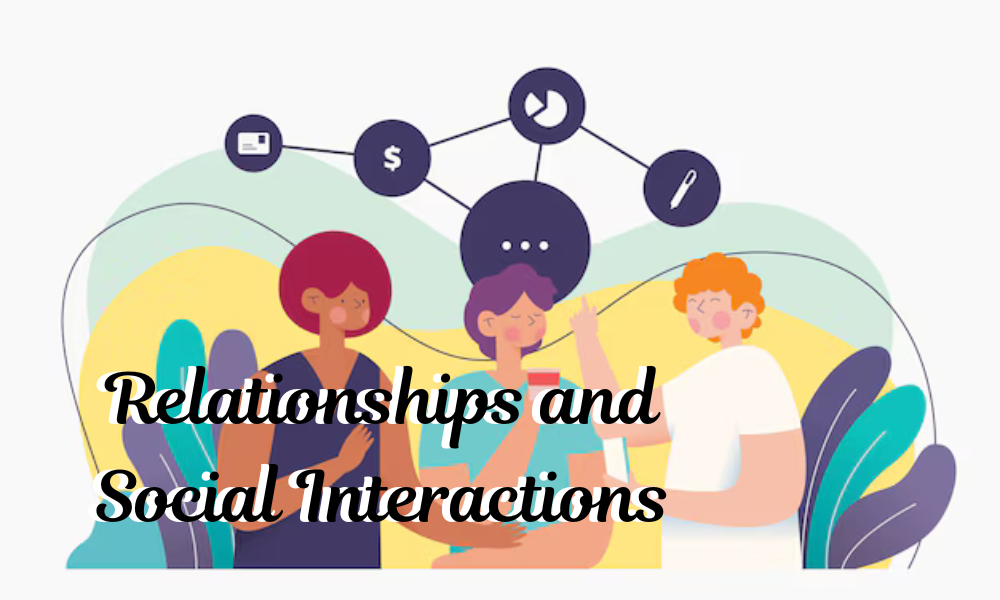5 Advantages of Self-Confidence and Personality Development
Introduction
Table of Contents
Toggle
Self confidence is the foundation of success, the manner in which one thinks, acts, and interacts with the world. It is the very essence of a person making a bold choice, communicating his thoughts, and developing himself. The self-confidence one has will make one appear so convincing that he can overcome his hurdles and embrace chances to reach his true potential. Self-confidence is necessary for the golden path of a good life, whether maintaining personal relations, grooming one’s career, or day-to-day interactions.
In this fast-paced world, self confidence has become essential rather than advantageous. It reflects the carriage with which a person perceives himself and moves around in the world and how others perceive him as well. In fact, a self confident person would be inclined to take risks, to take criticism constructively, and to bounce back from disappointment with resilience. It is through self-confidence that one develops his personality, with self-awareness, emotional intelligence, and adaptability serving as key components. Those who are able to build their confidence will witness incredibly strong development in many areas of life.
This being said, self-confidence is not a natural gift; it is a learned trait that can be cultivated and strengthened over the years. Once you give yourself the chance to become aware of the advantages of self-confidence, you will be able to begin taking deliberate, purposeful steps to work toward your own improvement and empowerment. This blog will outline five distinct areas of self confidence that will give you insight into how it improves decision-making, mental well-being, relationships, career advancement, and personality development. For a person looking forward to paradigm shifts toward his thinking and character growth, self-confidence is the first step toward a more successful and fulfilled life.
1. Self-Confidence Enhances Decision-Making Skills
Making decisions with great self-confidence considerably exhilarates decision-making since it removes hesitation possessing the characteristic of enabling logical thinking and reasoning with respect to choices. With self-confidence, individuals have faith in their judgment and can go about deciding without second-guessing themselves relentlessly. Such confidence allows individuals to assess situations rationally, weigh the pros and cons, and settle on a decision. Good decision-making is important, be it personal or professional; it allows grabbing opportunities and resolving issues. In fact, with some good dose of self-confidence, an ability of emotional intelligence gets cemented, enhancing accurate stress management, emotional calming, and rational decision-making instead of acting impulsively.
Self-confidence, therefore, plays an important role in the development of personality, which is the fountain of skills relating to the ability to lead, communicate, and solve problems. A confident person has lesser susceptibility to manipulation from fear or pressure arising from the environment. Such a person would make decisions congruent with personal values and in alignment with long-term goals. The same confidence is, therefore, an enhancer for personal development, respect, and trust of others, making them effective leaders and team players. When self-confidence is nurtured, individuals develop a mindset that is proactive and solution-oriented, which is inextricably linked to surviving the engulfing gulfs of life. High self-confidence will turn into the basis for great, well-informed, and strategic decisions, capable of empowering oneself toward long-lasting success.

How self-confidence helps in making quick and firm decisions.
Self-confidence is vital for prompt and firm decision-making without second-guessing one’s self. Action is the approach. Self-confidence creates trust in one’s ability to see clearly when faced with situations calling for assertiveness and being fearless rather than paralyzed by fear. Self-confidence equally augments emotional management, allowing one to manage stress levels, control impulsive reactions, and moderate extremes when making choices under duress. Self-confidence is integral to personal development and thus engenders a solution-based mindset which enables figuring possible risks and trusting one’s judgment in taking responsibility for the resultant consequences. Acts even in making and breaking career decisions, facing personal challenges, or assuming leadership roles, self-confidence encourages one to think clearly and act with conviction to ensure more success and personal development.
The role of self-trust in reducing hesitation and doubt.
Self-confidence, self-trust is a crucial factor in lessening hesitation and doubt. Trusting their abilities and their decisions, people quit questioning themselves; therefore, their choices become swifter and more decisive. This self-trust itself represents emotional intelligence, as an individual adept in managing stress, regulating emotions, and approaching obstacles without fear but with clarity. Furthermore, self-trust is, without a doubt, a considerable ingredient in building a personality, as it encourages self-awareness, authenticity, communication, and assertiveness. A confident person conveys thoughts without checking themselves, stands up for his or her values, and tackles personal or professional challenges with ease. Self-confidence nourished with self-trust will allow an individual to push through the pain of self-doubt, take bold steps toward their goals, and unleash their true potential.
Examples of confident decision-making in personal and professional life.
Self-confidence is an important factor while making any kind of decision about the personal and professional life. A person endowed with self-confidence listens to their instinct and sees situations with clarity, thus enabling them to make commitments firmly without hesitation. For instance, self-confidence serves several purposes in personal life: getting out of a toxic relationship, changing a job, or making choices that generate opportunities for enhancement and growth while using emotional intelligence to help them navigate through the hurdles. In an organizational environment, confident professionals speak their minds during meetings, accept leadership responsibility, and utilize constructive engagement with criticism, which ultimately fast-tracks their growth and career development. Decisions made primarily from self-confidence set a course for success, but they also win trust and admiration from fellow colleagues; therefore, self-confidence becomes the bedrock of leadership and personal greatness.
2. Self-Confidence Improves Mental and Emotional Well-Being
Self-confidence is really important in making the mental and emotional self far better. It establishes a good self-image and alleviates stress. In spite of this, if people believe in their abilities, there is minimal risk that they will be susceptible to self-doubt and anxiety and fear of failure. Hence, an individual is viewed as self-confident if he is capable of acquiring a tool that is utilized to withstand different circumstances with meaning and then guides them to achieve extreme emotional stability. It also enhances emotional intelligence to know, understand, and manage emotions. This level of awareness improves an individual’s judgment, close relations with others, and overall feeling of inner peace.
Self-confidence becomes that partner to personality development since it creates an atmosphere for the individuals to get out of the comfort zone and try out things without worrying about what other people would say. It is always said that a confident person sees life with a glass half full and so will be less disturbed by depression or self-criticism because he believes that he will achieve his ultimate goal sooner rather than later. Some people can propel the self-confidence engine toward building a growth mindset to recover from failures rather than prevent them from moving forward. Consequently, they will find better levels of emotional well-being to self-esteem and satisfaction in their private and professional lives.

Connection between self-confidence and lower stress levels.
Self-confidence is essential for stress reduction because it provides emotional stability and assurance. When challenged, those individuals confident in their abilities are less likely to feel overwhelmed and instead foster calm and solution-focused mindsets. Emotionally intelligent confidence enables better emotional regulation, thus leading to decreased anxiety when one is under pressure. Self-confidence is also a key ingredient in personality development, as it nurtures resilience and self-awareness while generating a positive attitude toward life. Confident persons are oriented more toward their improvement rather than dwelling on failure; this only serves to assist them much better in their stress management. In strengthening one’s self-confidence, an individual establishes an emotionally balanced state that directly facilitates lower stress and higher wellness.
How self-confidence reduces anxiety and boosts resilience.
Self-confidence is crucial to lowering anxiety levels and increasing resilience through a strong belief in oneself. With self-confidence, there is less self-doubt and fear, which in turn helps in coping with stress. Self-confidence is directly proportional to emotional intelligence: it helps in the regulation of one’s emotions, allows one to keep their calm under pressure, and aids them in approaching problems in a problem-solving way. The kind of assurance I am talking about is essential for personality development; it helps people see their failures as learning rather than unfortunate events. Confident people bounce back from setbacks more effectively to cope with changes. The self-affirmation will allow people to transcend the fears, take risks and summon the strength to overcome every barrier in any aspect of life.
Real-life stories of people who have transformed their mental well-being through self-confidence.
Another inspiring example of self-confidence and its effects on mental well-being is how the case of Sarah-a young professional-who battled crippling anxiety and self-doubt. She hesitated to assert her opinions for fear of judgment to her detriment, both personally and professionally. Determined to change herself, she put herself through personality development via self-improvement courses and mindfulness programs. With building self-confidence came her emotional intelligence-the ability to manage stress, strengthen relationships, and resist challenges-resilience. This journey made her more assertive and provided opportunities to take up leadership positions and greater fulfillment in life. Sarah’s case is an embodiment of the fact that self-confidence is an avenue for mental well-being, where emotional strength is gained to facilitate personal transformation.
3. Self-Confidence Strengthens Relationships and Social Interactions
Self-confidence is a ferrul in maintaining relationships and improving interaction with the society. Self-confident people can better communicate their views clearly and make important contacts with others. A self-confident person would be more likely to engage in a conversation without the fear of getting judged, thus bringing about approachability and trustworthiness. It is this open interaction that builds stronger personal and professional relationships, while self-confidence helps one set healthy limitations to ensure respect and balance.
This ultimately develops good social skills, which translates into better networking opportunities. It also becomes a good opener for friendship and even a better avenue for creating deeper emotional attachments. This, indeed, has a tight nexus with personality development and emotional intelligence. A confident person is, therefore, more self-aware and knows their emotions, responding clearly and calmly to every social situation surrounding them. Such emotional intelligence would, therefore, cause conflict management, compassion for others, and love for oneself and positive relationships with others.
Believing oneself makes someone attract people naturally because they have a value in their presence. Confidence is said to brush aside social anxiety, thus making people different concerning personality and culture able and have no hesitation in coming. Self-confidence itself acts as a catalyst for creating trust in relations and better communication, even more in binding longer relationships, be they personal or professional.

How self-confidence improves communication and assertiveness.
Self-confidence: That flexibility in speech and the assertiveness within an individual shapes the ability to generate an idea. Assertive communications adjust the manner in which a person clearly communicates. A confident individual would always articulate a point clear and would establish eye contact while speaking opposing their ideas in an effortless way, thus conveying more impact and stimulus to the words. It also reinforces assertiveness, enabling boundaries to be set, opinions to be voiced, and interactions to be managed with relative ease in social or professional contexts. The relationship extends to other domains, such as personality development and emotional or social intelligence, which work toward building an active listening disposition, empathy towards others, and considered responses. Self-confident people tend to take criticism, engage in meaningful argument, and develop a personality where everyone looks up to them with respect and awe.
The impact of confidence on attracting positive relationships.
Self-confidence lends authenticity to the person, thus, fostering a respected emotional environment and aiding in communication-all vital features in creating positive relationships. Those with self-confidence have a presence about them that attracts others to them in fruitful and supportive relationships. When people are self-confident, they express themselves freely, set healthy boundaries, and move socially with ease. Self-confidence is also linked to emotional intelligence, which fosters an understanding of one’s own feelings and empathizing with those of others-another boon to relationship strengthening. Building self-confidence in personality development also makes a person more warm and open, instilling norms of trust and admiration. Those who naturally attract others are mostly confident people who are positive and create an ambience of respect for one another. As self-confidence blossoms, these people will forge relationships that will enhance their personal and professional lives toward happiness and success.
Tips on building self-confidence to enhance social interactions.
Building self-confidence is an imperative process for successful socialization because it enables one to communicate, express oneself, and form meaningful relations. One such way of improving self-confidence is through building self-awareness, the most important in personality development to understand the strengths and weaknesses of self in social situations. Also, improving emotional intelligence plays an important part: knowing and ruling emotions leads to a better response to other people and can lead to deeper and richer conversations. Things like posture cause even further damage: eye contact, open gestures, and voice tone- all of them can be interpreted as confident and lead one to pleasant relations.
Like starters for an actual conversation as another activity in social practice will help reduce much anxiety when making that kind of talk with someone and make it feel more natural. An encouragement further comes in through the environment: positive and supportive people surround self-belief and build confidence over time. These would serve to gradually build self-confidence in individuals to create more meaningful and impactful social interactions.
4. Self-Confidence Boosts Career Growth and Success
Self-confidence is the most important aspect of creating a successful and progressive career path. It enables individuals to take bold steps, to seize new opportunities, or to go through with resilience through professional challenges. A confident professional exudes authority and credibility, making it much more probable that he or she will receive respect, leadership roles, and influence with others. Self-confidence increases the ability to communicate effectively because it allows individuals to express their ideas in an assertive and persuasive manner in the workplace. Plus, it encourages a personality development concerned with self-awareness, flexibility, and proactively addressing self-advancing targets. Well, that’s what most employers and business leaders want; because such attitude refers to a responsible person, good in problem solving, and indeed well at handling pressure situations.
Self-confidence is also directly related to emotional intelligence. This element is integral to effective workplace relationships and teamwork. A confident individual has the ability to keep it cool during a very stressful situation, to take criticism as an opportunity to grow, and even side-stepping conflicts. The swing of self-confidence and emotional intelligence creates an overall image that can work positively to create networks, career advantages, and even growth. An individual who has faith in his abilities is also more inclined to take calculated risks outside his comfort zone and take on leadership roles. In short, working toward self-confidence accelerates one’s career achievement and brings long-term fulfillment, which is the foundation for excellence in any field.

Why self-confidence is essential for professional development.
Self-confidence leads to professional growth because it allows a person to grab opportunities, walk through challenges, and express their skills well. A confident professional speaks well, makes quick and clear decisions, and is resilient when handling pressure in the workplace. Self-confidence also nurtures personality development through leadership, problem-solving, and adaptability. Emotional intelligence is closely related to self-confidence; it helps one to manage stress, carry out work-related relationships, and take feedback positively. Confident people also give an impression of competence and reliability, thereby winning the trust and respect of their coworkers and superiors. When self-confidence is enhanced, opportunities abound for professionals, providing a quick opportunity for growth while developing into a leader in their field.
How self-confidence influences leadership and career opportunities.
The secret ingredient for developing leadership skills and stepping into opportunities is self-confidence. A self-assured person, by virtue of their natural authority, takes charge of situations and is able to make the important decisions that a strong leader needs. In any work environment, self-confidence allows coworkers to verbalize their ideas, take in constructive criticism, and offer inspiration to others. Development of personality goes hand in hand with self-confidence, which molds a person into a strong, flexible, and self-aware individual. Confident leaders with high emotional intelligence can manage teams effectively, mediate disputes, and generate a positive work environment. When employees are self-confident, they recognize opportunities for career advancement, take on challenges, and position themselves for promotion and leadership roles. Continuous development of self-confidence, emotional intelligence, and personality will facilitate the individual’s fast track while ensuring success in a future career.
Success stories of professionals who achieved growth due to self-confidence.
It is the self-belief that lends impetus to many professionals, guiding their careers and capabilities in leadership. For example, Oprah Winfrey transformed hard, early days into the seed of a global media empire, trusting instincts and a consistent commitment to self-development. Strong emotional intelligence and a high level of self-confidence enabled her to connect with her fans to build a sustainable success. In the same manner, Elon Musk’s certainty in his vision allowed him to weather early setbacks and invent industries with Tesla and SpaceX. Taking risks, learning through failures, motivating others—these are some areas where self-confidence coupled with emotional intelligence propel professional advancement. All these success stories justify that self-confidence is the way to surmount all hurdles, catch hold of opportunities, and gain lifelong career success.
5. Self-Confidence Encourages Personal Growth and Risk-Taking
Self-confidence is an enormous driver of personal growth and risk-taking. When people believe in their abilities, much more likely are they to tread into unfamiliar terrains, expose themselves to novel challenges and storms and continue to honour set goals with that grit. Strong self-confidence is conducive to resilience, thus enabling people to absorb lessons from losses instead of cowering in fear from them. It is the urge of taking risks that keeps character development alive, pushing individuals to sharpen their abilities, accumulate new knowledge, and aspire to other faculties. Self-belief may go a long way in motivating people to embark on a number of endeavours on their already established path of success: be it to start a business, change career or develop a new talent.
Another advantageous feature of self-confidence is conducive to nurturing emotional intelligence, which is indispensable to managing all kinds of atmospheres of failure or mishaps. With certainty, individuals under regeneration manage anger and stress, solve communication crises with balance, and retain positive energy amidst times of turbulence. Additionally, they are respecting their godself through their decision-making and a growth mindset that takes them further into alchemy transformation-thus converting hurdles into gateways. In one way or another, self-confidence not only brings success but it advances inner self-awareness into personal adaptability and emotional resilience. One who strives for greater self-confidence undergo an overwhelming revolution in the entirety of the personal and work arenas, substantiating that change begins when one accepts risks and believes in oneself.

The role of self-confidence in stepping out of the comfort zone.
Stepping out of the comfort zone feels intimidating, to say the least, but self-confidence is the tool that propels a person to embrace challenges and opportunities. With self-belief, a person would generally step into the unknown, go to the edge, and take risks that facilitate continuous personality development. The power of confidence carries resilience, which allows the person to move past fear and doubt and embrace change with optimism. In addition, confidence enhances emotional intelligence, helping people manage stress, deal with failures in a positive way, and extract lessons. With confidence to move beyond their limitations, people will strive towards unlocking their true potential and leveraging it for personal and professional development.
How confidence motivates individuals to embrace new challenges.
Self-confidence means the ability a person has to take on the challenge in life by making him believe in his strengths and capabilities. Such self-confidence makes people leave their comfort zone to take certain risks. With some opportunities, they help shape their personalities. Thus this strong person would view problems and not failures because these could be great puzzles for them to solve, gaining more strength with this perspective. Furthermore, emotional intelligence is also an important factor to consider in challenging uncertain conditions; confident individuals can control their emotions and make failures more constructive and motivated. Forge a path into courageous individuals among self-confidence and emotional intelligence entrance.
Tips on cultivating self-confidence for continuous self-improvement.
Self-confidence is a lifetime project that entails self-reflection, persistence, and a commitment to one’s own personality development. Working up self-confidence can happen when a person works on realistic goals, steps out of his or her comfort zone to achieve them, and, through the merit of positive self-affirmation and celebratory reward for small achievements set, reinforces his or her self-image. Another important aspect of enhancing self-improvement is to develop emotional intelligence, such as managing one’s own emotions, taking constructive criticism, and building resiliency. Likewise, self-affirmations. Good company is anything that asserts oneself, and a growth mindset is also anything that builds confidence. Self-improvement leads on a continued path of increasing confidence, thus helping a person to recognize his potential and carry through life with success and confidence.
Boost your self-confidence today and unlock success! Start now and embrace a more confident version of yourself.
Conclusion
Self-confidence is the basis for a successful and fulfilling life. It impacts decision-making, emotional stability, relationship building, career advancement, and self-improvement opportunities. The more self-confident a person becomes, the more he or she can find and realize true possibilities and navigate through life with clarity and concrete objectives. Begin the work of strengthening your confidence now, and behold the transformation in your life. Shift your focus from initial self-training toward gradually developing self-confidence through perseverance.
